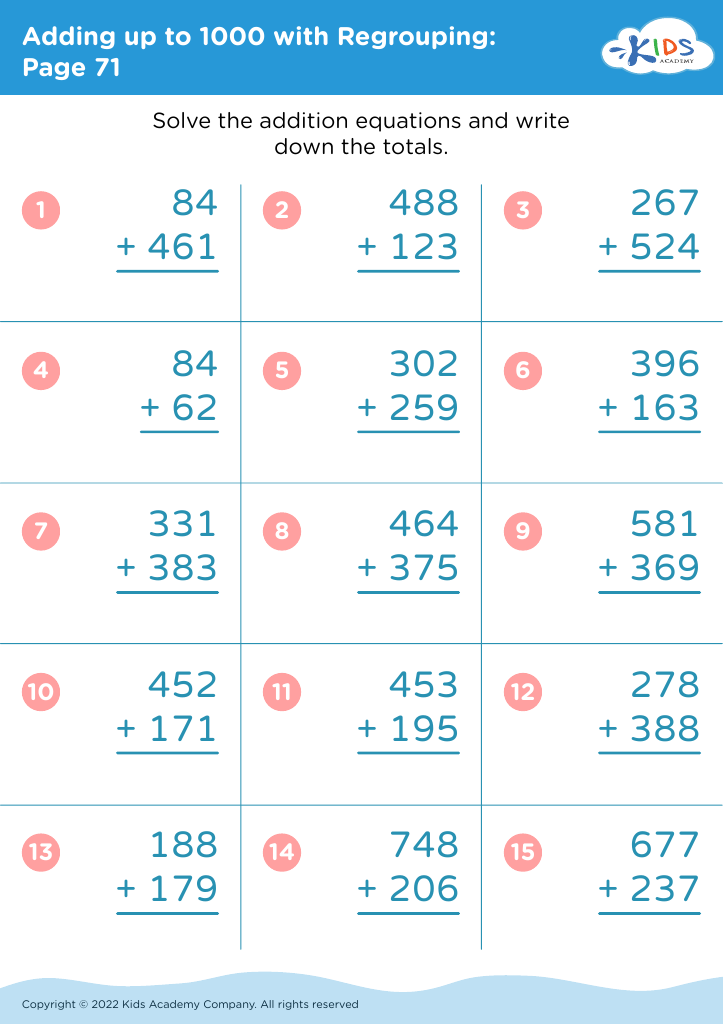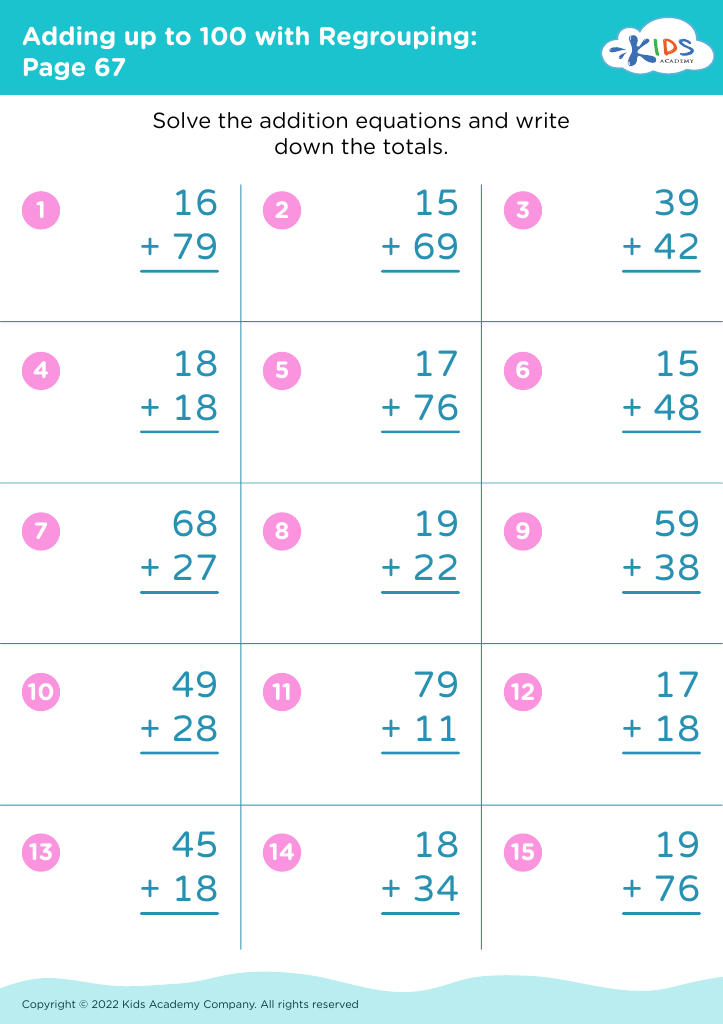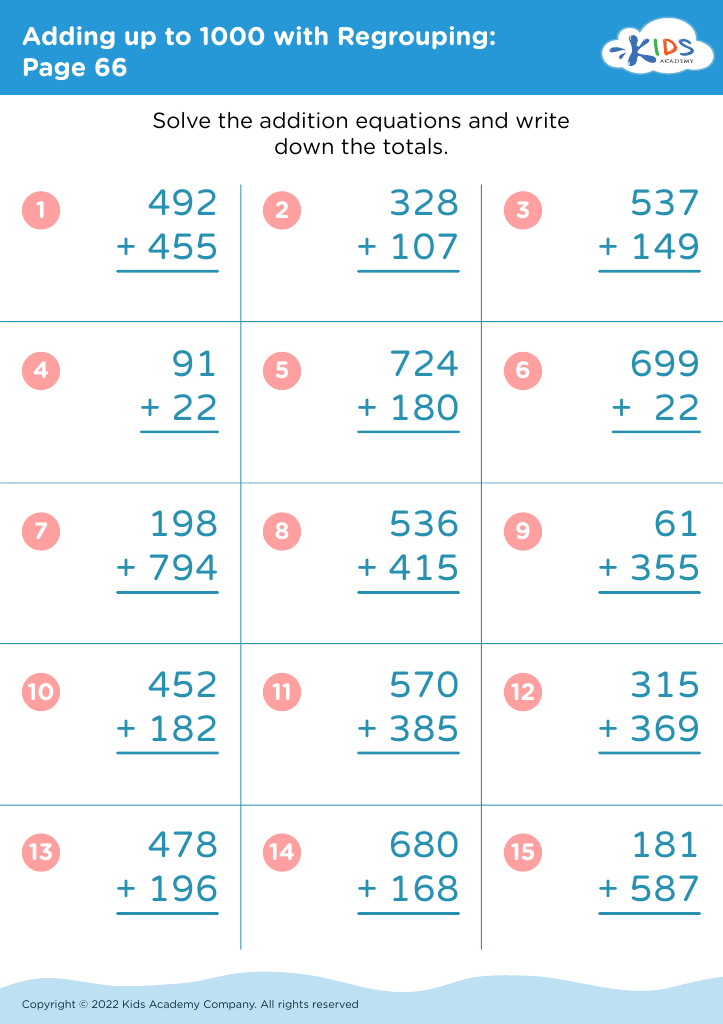Enhances number recognition Addition & Subtraction Worksheets for Ages 4-9
4 filtered results
-
From - To
Our “Enhances Number Recognition Addition & Subtraction Worksheets for Ages 4-9” are designed to make learning numbers fun and accessible for young children. These expertly crafted worksheets help kids develop essential math skills while boosting their confidence. Each activity focuses on solidifying number recognition and fundamental operations, making complicated concepts easy to grasp. Featuring vibrant designs and engaging problems, these math sheets transform learning into an exciting adventure. Ideal for parents and educators, they offer a structured, effective approach to practice addition and subtraction. Set your child up for math success and build a strong numerical foundation today!
Enhancing number recognition and foundational addition and subtraction skills in children aged 4-9 is pivotal for several reasons, catering both to immediate educational needs and long-term cognitive development. At this formative stage, children’s brains are exceptionally receptive to new information and are developing essential neural pathways for future learning. Mastery of basic mathematical concepts during these years creates a robust foundation for more complex mathematical operations they will encounter in later grades.
For one, number recognition is a cornerstone of not only mathematical education but also overall cognitive development. It empowers children to make sense of numbers in their environment, enhances their ability to measure, compare, and work with quantities, and improves logical reasoning and problem-solving skills. Furthermore, proficiency in addition and subtraction involves understanding the basic operations that govern the world around us, from simple financial transactions to everyday decision-making.
Teachers and parents who prioritize these skills are setting children up for academic success. Early competency in math fosters confidence and reduces math anxiety, making children more likely to enjoy and excel in math-related subjects. Moreover, these skills are integral in following instructions, completing puzzles, playing games, and even developing social skills through collaborative problem-solving activities. Essentially, attention to these early educational milestones ensures well-rounded development and incites a lifelong appreciation and aptitude for learning.
























